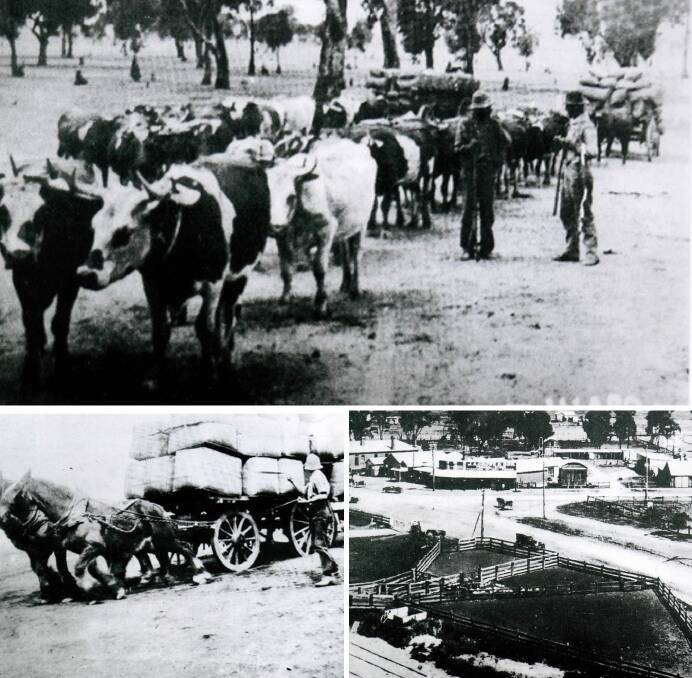
As wheat growing expanded, Illabo, like Bethungra and Old Junee, became important for the transport of grain, just as it had been with wool. All wheat was carted in bags, stacked at or near the railhead and hand lumped into rail trucks as wheat agents received orders.
Subscribe now for unlimited access.
or signup to continue reading
In 1917, 177,787 bags of wheat (more than 9500 tonnes), were received at Illabo. In 1922, the concrete silo was built and bags were emptied into the hopper for elevating into the storage.
Wheat was carted from as far away as Nangus and Junee Reefs to Illabo and Bethungra and stacked in large sheds at the station or in the open when necessary.
Bullock teams were used for many years but horse drawn wagons were faster.
A load from near Cooba to Bethungra would take two days, being unloaded in the first afternoon and camping on the return trip at Merribindinah, the next day returning to the property to load up again.
Platform wagons carried 130 bags (10.6 tonnes), a box wagon carried 110 bags (9.0 tonnes) and were pulled by eight horses. The wagon driver would usually sleep under the wagon.
Wheat and other cereals were by now being harvested by a “stripper” which pulled off the heads containing grain which would be threshed and run through a winnower to clear away the chaff and other residue.
The grain would then be bagged and dumped to fill to the maximum capacity after which it would be sewn up ready to load. One had to sew at least 100 bags per day to be accepted as a bag sewer.
From 1897, wheat was also carted from both sides of the railway to the new siding at Boree between Illabo and Junee.
This would have been very helpful to wheat growers in the Wantiool and Eurongilly areas. There were no grain receival silos at Junee until much later. Boree was renamed Marinna in 1910.
A Provisional School was started in January 1882, becoming a Public School in December, 1883. The following year, land was provided on the corner of the main road (now Olympic Highway) and Junee Reefs Road. The school closed in 1898 and children went to Junee or Illabo.
Marinna had a station, railway crossing gates and gatekeeper’s house, store, silos in 1922 and telephone exchange. At times, there was a group of tents where railway workers and families lived.
Marinna railway station closed on July 19, 1975 and like the other small stations in the Junee district, was demolished, most of the material being buried with the rubble of what was once Illabo railway station.
Those buildings now just a memory and a few photographs.

